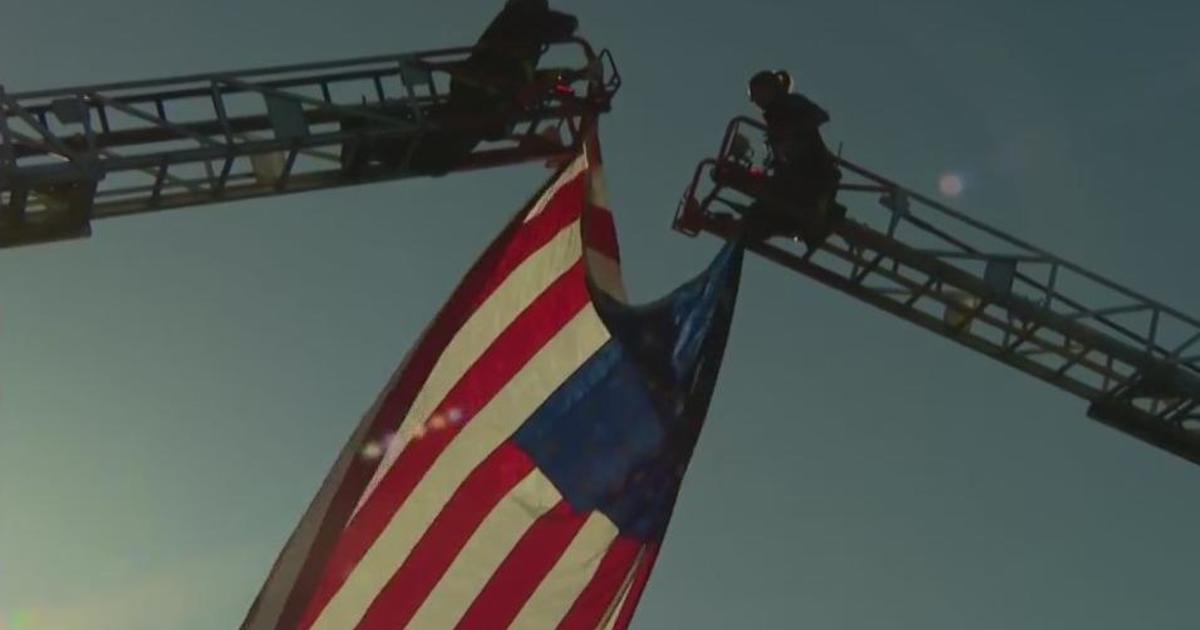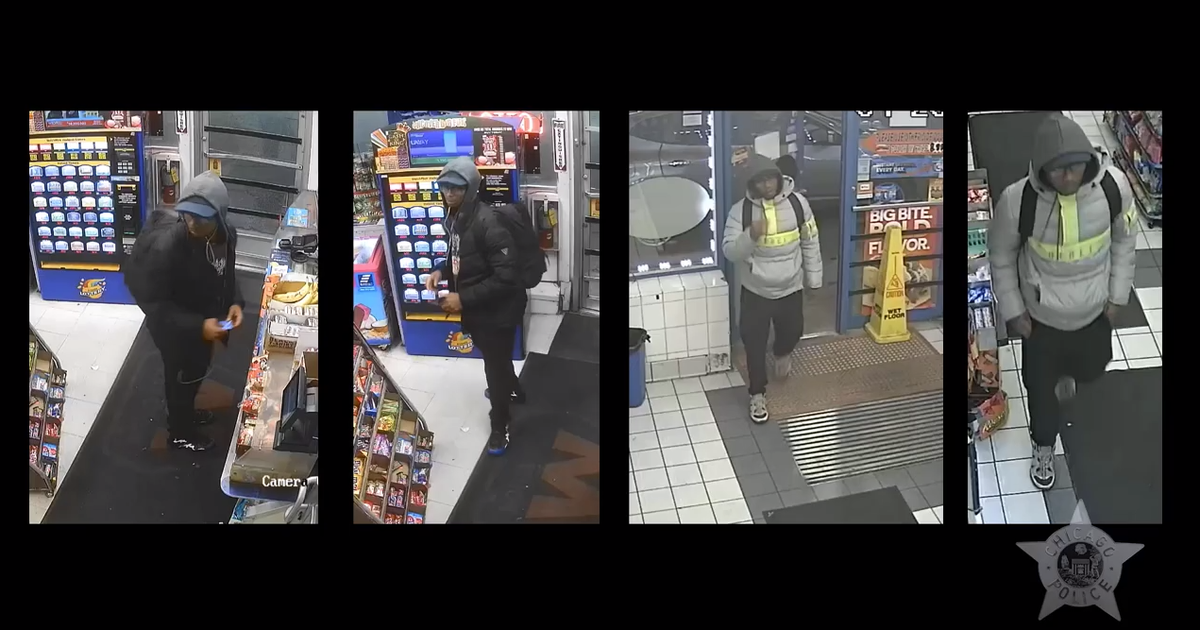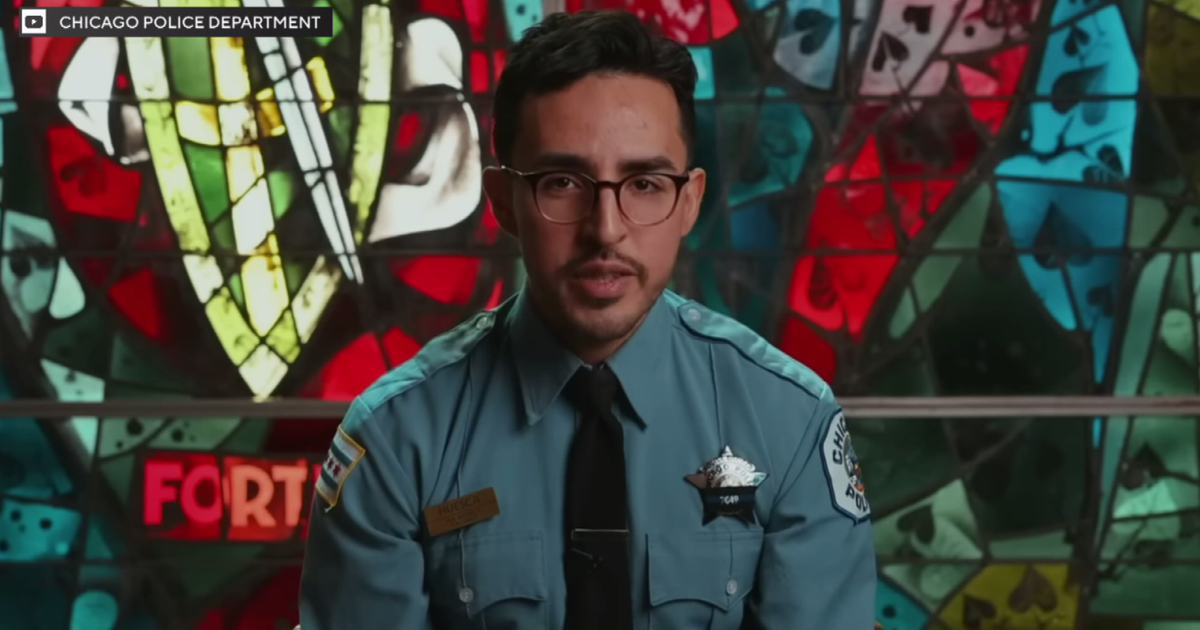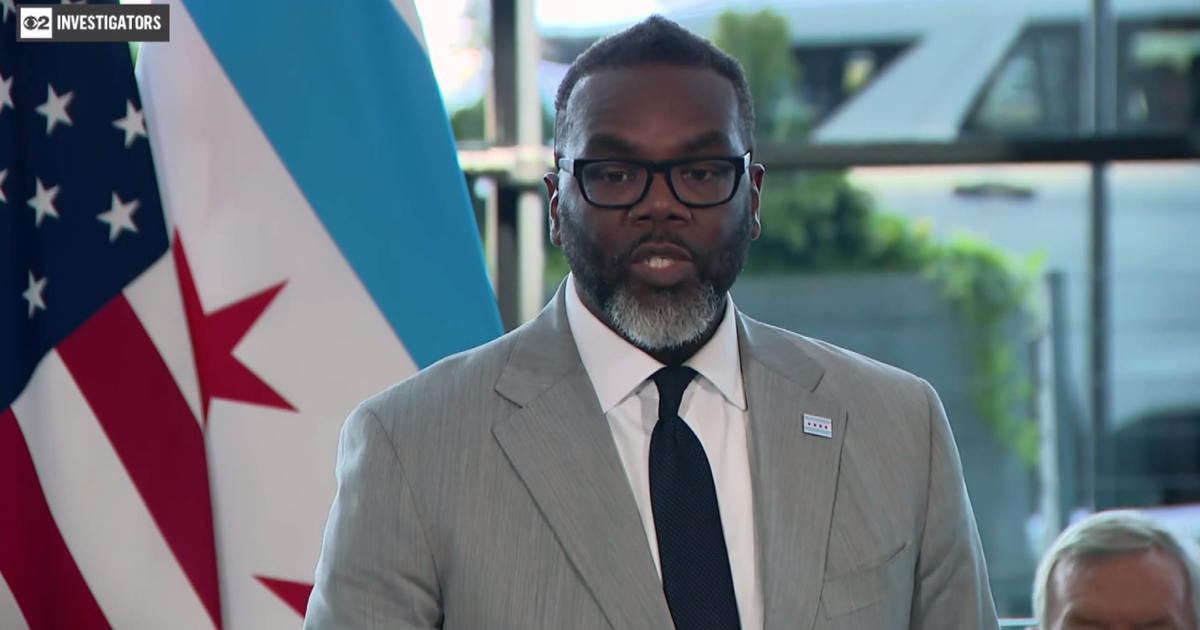Aldermen Balk At $125,000 Settlement For Mother Of Mentally Ill Man Shot And Killed By Police In 2013
CHICAGO (CBS) -- The City Council's Finance Committee on Monday voted down a proposal to settle an excessive force lawsuit filed by the mother of a mentally ill man who was shot and killed by police in 2013, after several aldermen argued the shooting was clearly justified.
Lenora Bonds had called police in October 2013 for help with her son, Terrance Harris, who was diagnosed with bipolar disease.
When officers arrived, Harris was armed with two butcher knives, and stabbed his mother and an officer before retreating to the basement and barricading himself in the furnace room.
After his mother left the house, three other officers followed Harris into the basement, where he lunged at them, and officers shot him a total of 29 times. Deputy Corporation Counsel Victoria Benson told aldermen two of the shots were to the back of Harris' head.
The three officers who fired their weapons were later cleared by the Independent Police Review Authority (IPRA), a city agency tasked with investigating police shootings, which has since been replaced by the Civilian Office of Police Accountability.
City attorneys have recommended the city settle Bonds' lawsuit for $125,000, but the Finance Committee rejected that recommendation on Monday by a 13-13 vote.
"This is a justified but unfortunate situation. Settling sends a bad message to police officers when they have to make these split-second decisions," said Ald. Silvana Tabares (23rd), one of the aldermen who voted against the settlement.
Bonds claimed the shooting was not justified, and her attorneys have said the officers' use of force was excessive.
Benson said Bonds' lawsuit also claims the Chicago Police Department did not provide sufficient crisis intervention training for officers at the time of the shooting.
A police sergeant who received crisis intervention training did respond to the scene, but that is the officer who Harris stabbed when police knocked on the door of the home, and that officer immediately was taken to the hospital. Benson said officers who responded to the scene also reported that Harris had caused a gas leak in the home, and they were concerned he could cause an explosion.
Benson said, if the case were to go to trial, Bonds' attorneys would argue that, since Bonds was able to safely leave the house after police arrived, it was not necessary for officers without crisis intervention training to go inside to deal with a person who was suffering a mental health crisis. She said Bonds' attorneys also are expected to argue officers shot Harris in revenge for the stabbing of their fellow officer.
Ald. George Cardenas (12th) said he doesn't believe the city should be settling a case that was ruled justified by the agency tasked with investigating claims of police misconduct.
"The fact that one [officer] was stabbed, the fact that you described imminent danger that the house could be blown up, the fact that IPRA said it was a justified shooting, I'm not sure why we're settling this case," Cardenas said.
Ald. Michele Smith (43rd), a former federal prosecutor, said it's not uncommon for the city to be subject to a lawsuit in which both the city and the person suing them have a strong case, and it makes more sense to settle rather than risk even higher costs by taking the case to trial.
"As fiduciaries of the city, frankly, it's a very cold reality to say that our job is to protect the financial resources of the city, and at the same time try to do everything that we can to make sure that tragic events like this don't happen," she said. "We've all been involved in situations in which, even though both sides could win, it makes more sense to settle."
Although the Finance Committee has rejected the proposed settlement in Bonds' lawsuit, it's possible the full City Council could still approve it on Wednesday, should a majority of the Council vote to overrule the committee's decision.
Meantime, the Finance Committee narrowly approved a $425,000 settlement for Dejuan Harris, who was shot by police in Englewood in 2016. That settlement has been languishing in the Finance Committee since last September, when the committee took no action on the proposed payout after several aldermen claimed they did not believe the city would lose at trial.
In Dejuan Harris' case, Police said officers had pulled over a vehicle with stolen license plates, when he and two other men ran off, and Dejuan Harris pointed a gun at the officers.
Dejuan Harris claimed he had thrown away his gun as he was fleeing police, and was still running away when he was shot.
The settlement for Dejuan Harris was brought up once before at a Finance Committee meeting in September, but it was held in committee after several aldermen raised doubts about Dejuan Harris' account of what happened.
When the settlement came up again for a vote on Monday, the Finance Committee approved it by a 15-13 vote.
Ald. Nicholas Sposato (38th), who was among the aldermen who voted against settling Dejuan Harris' case, said he believes approving the settlement will simply open up the city to further lawsuits by criminals who get shot by police.
"There is a fiduciary responsibility, and that fiduciary responsibility is to say we're not open for business. You can't keep suing us, whether it's $100,000, $500,000, or whatever. If we're opening these floodgates for people, no matter how small they are, this is going to continue to happen. It's going to continue to cost us money," he said. "It is a fiduciary responsibility to say if you do wrong, we're not going to pay you."
However, Ald. Jason Ervin (28th) said "it's easy to gamble with somebody else's money," and warned against aldermen rejecting the advice of city attorneys who recommend settling lawsuits against the city, rather than risking taking cases to trial.
"If you want to roll the dice, put some money on the table. We're rolling the dice with taxpayers' dollars, and I think that we have to be a little more judicious in our thinking as it relates to these cases, and what the potential costs are for the taxpayers of the city," Ervin said. "If we don't trust our attorneys, then we need to get some new attorneys, but I have to believe that our attorneys are bringing us these items in good faith, and in what is the best interests of our taxpayers, and what's in the best interests of the city."
The Finance Committee approved two other settlements on Monday, including a $14 million payment to two men wrongfully convicted of the 1989 murder of a retired Chicago police sergeant's wife.
Kevin Bailey and Corey Batchelor spent nearly 45 combined years in prison before they were cleared of the stabbing death of Lula Mae Woods, whose body was found in the garage of her home in June 1989.
Police said an informant who claimed Batchelor admitted to the killing led to the arrests of the two suspects. They were convicted without physical evidence linking them to the crime, based largely on confessions they said were the result of police torture.
Batchelor was sentenced to 30 years in prison, and was released on parole in 2004 after 15 years behind bars. Bailey was sentenced to 80 years in prison, and was released in January 2018, after spending 29 years in prison, when a Cook County judge dismissed their convictions.
Cook County prosecutors spent seven months reviewing their case, before concluding in January 2018 that there was insufficient evidence to uphold their convictions.
Bailey and Batchelor have maintained their innocence ever since their arrests, and have said they were tortured into confessing by former Chicago Police Cmdr. Jon Burge's infamous "midnight crew" at Area 2 headquarters. Their attorneys said they had evidence the same officers also were accused of choking and beating suspects in other cases to obtain false confessions.
"So now we have clear and convincing evidence of their innocence," Adams said. "It was not Kevin Bailey and it was not Corey Batchelor."
The Finance Committee unanimously approved the proposed $14 million settlement in their case without discussion.
The final settlement approved by the Finance Committee on Monday was a $115,000 payment to brothers Bernard Grayer and Marquinyelle Holt, who accused police of a wrongful arrest in 2018.
City attorneys said, on Dec. 1, 2018, an anonymous source told police he'd seen Grayer, a convicted felon, with a handgun, and after police found pictures of Grayer holding a gun on his social media accounts, they obtained a search warrant for his home.
When police executed the search warrant on Dec. 3, 2018, officers said they saw Grayer holding a gun inside the house, before handing it to his brother, who hid it inside a coat in the closet.
However, the brothers argued police never saw Grayer with a gun, and that it was inside a lockbox in the closet.
City attorneys said, while the brothers and police dispute whether or not Grayer was ever seen holding the gun as police were executing the search warrant, there is no dispute the gun legally belonged to Holt.
The brothers also said the pictures of Grayer holding the gun on social media were taken inside the house, not outside, so he never broke the law against convicted felons possessing firearms.
Aldermen voted 17-9 to approve settling the case.
All four settlements now go to the full City Council for a vote on Wednesday.



